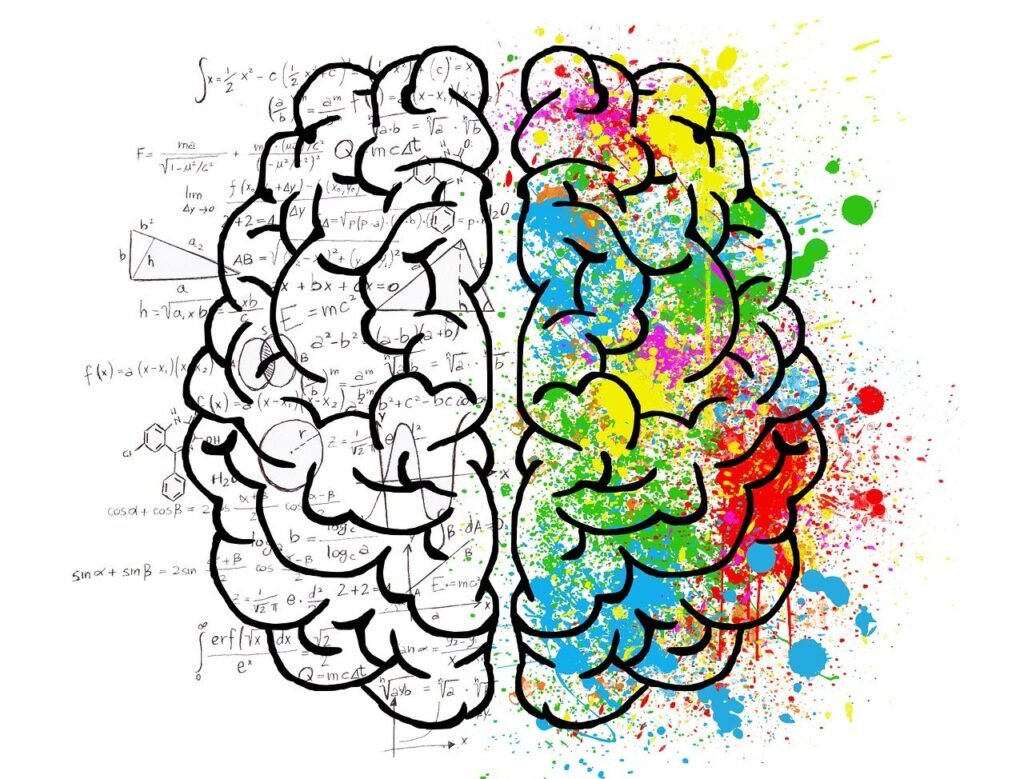Imagine finding a way to unwind and relax that not only brings peace and tranquility but also offers numerous health benefits. This is where mindfulness meditation comes in. By incorporating mindfulness meditation into your relaxation routine, you can experience a wide range of positive effects on both your mental and physical well-being. From reducing stress and anxiety to improving focus and sleep quality, this practice has the power to transform your life in more ways than one. So take a moment to pause, breathe, and discover the amazing benefits that mindfulness meditation can bring to your relaxation routine.

Improved Stress Management
Reduced Cortisol Levels
Incorporating mindfulness meditation into your relaxation routine can have a profound impact on your ability to manage stress. One of the key benefits is the reduction in cortisol levels, which is a hormone that is released in response to stress. High levels of cortisol can lead to a range of negative health effects, including increased anxiety, weight gain, and difficulty sleeping. By practicing mindfulness meditation regularly, you can help to lower your cortisol levels and promote a more balanced stress response in your body.
Enhanced Resilience to Stress
Another benefit of mindfulness meditation is its ability to enhance your resilience to stress. Regular practice can help you develop a greater sense of self-awareness and cultivate a mindset that allows you to navigate stressful situations with more ease. You will become better equipped to recognize and disengage from negative thought patterns or rumination, allowing you to approach challenges with a calm and focused mindset. This enhanced resilience can have a positive impact on your overall well-being and ability to cope with the ups and downs of life.
Increased Emotional Regulation
Mindfulness meditation can significantly improve your ability to regulate your emotions. It provides you with the tools to become more aware of your emotions, allowing you to acknowledge and accept them without judgment. This skill can be particularly helpful during moments of high stress or intense emotions, as it enables you to respond to situations in a more measured and thoughtful way. By incorporating mindfulness meditation into your relaxation routine, you can cultivate emotional stability and create a sense of inner calm that extends beyond your meditation practice.
Enhanced Mental Well-being
Reduced Depression and Anxiety Symptoms
One of the most well-known benefits of mindfulness meditation is its ability to reduce symptoms of depression and anxiety. Research has shown that regular practice can lead to a decrease in the frequency and intensity of negative thoughts and emotions. By bringing attention to the present moment and cultivating a non-judgmental attitude, mindfulness meditation helps to create distance between you and your thoughts and emotions. This increased awareness allows you to observe your thoughts and emotions without becoming fully engulfed by them, leading to a greater sense of mental well-being.
Enhanced Focus and Concentration
In a world filled with distractions, mindfulness meditation offers a powerful antidote. By training your mind to focus on the present moment, you can improve your ability to concentrate and ignore distractions. This heightened focus extends beyond your meditation practice and can positively impact various aspects of your life, whether it’s at work, while studying, or engaging in hobbies. By incorporating mindfulness meditation into your relaxation routine, you can cultivate a greater sense of mental clarity and productivity.
Improved Cognitive Function
Mindfulness meditation has been found to enhance cognitive function in numerous ways. Research suggests that regular practice can improve working memory, attention span, and problem-solving skills. By training your mind to stay present and avoid getting caught up in repetitive or unproductive thoughts, you can optimize your cognitive abilities and perform better in various tasks. This can be particularly beneficial for individuals who rely on cognitive functioning in their studies or professional careers.
Increased Self-Awareness
Self-awareness is a fundamental aspect of personal growth and well-being. Mindfulness meditation provides a platform for developing a deeper understanding of yourself, your thoughts, and your emotions. By regularly taking the time to observe your thoughts and feelings without judgment, you can gain insight into patterns and behaviors that may be causing you distress or hindering your personal development. This increased self-awareness can help you make more informed and intentional decisions, leading to a more fulfilling and authentic life.

Promotion of Physical Health
Lowered Blood Pressure
High blood pressure is a significant risk factor for cardiovascular diseases. Mindfulness meditation has been shown to help lower blood pressure, particularly in individuals with hypertension. By reducing stress and promoting relaxation, regular meditation practice can have a positive impact on your cardiovascular health and contribute to maintaining healthy blood pressure levels. As a result, incorporating mindfulness meditation into your relaxation routine can significantly benefit your physical well-being.
Improved Sleep Quality
Quality sleep is crucial for overall health and well-being. However, many individuals struggle with sleep-related issues such as insomnia or poor sleep quality. Mindfulness meditation has been found to be an effective technique for improving sleep patterns and promoting better rest. By calming the mind and reducing stress before bed, you can create a conducive environment for a restful night’s sleep. Developing a mindfulness meditation practice as part of your relaxation routine can help you achieve better sleep and wake up feeling refreshed and revitalized.
Boosted Immune System
The immune system plays a vital role in protecting the body against infections and diseases. Mindfulness meditation has been linked to a stronger immune system, as it helps reduce inflammation and promote overall well-being. Regular practice can enhance the activity of natural killer cells, which play a crucial role in immune function. By incorporating mindfulness meditation into your relaxation routine, you can give your immune system a natural boost and support your body’s ability to fight off illnesses.
Reduced Inflammation
Chronic inflammation has been linked to a wide range of health issues, including autoimmune diseases, cardiovascular problems, and mental health disorders. Mindfulness meditation has been found to reduce inflammation in the body by reducing stress levels and promoting relaxation. By incorporating regular meditation practice into your relaxation routine, you can potentially alleviate chronic inflammation and improve your overall physical health.
Strengthened Emotional Well-being
Increased Happiness and Well-being
Mindfulness meditation has been shown to increase overall feelings of happiness and well-being. By training your mind to focus on the present moment and cultivate a non-judgmental attitude, you can develop a greater appreciation for life’s small joys and experiences. Regular practice can help you shift your perspective and find greater contentment in the present moment, leading to a more positive outlook and improved emotional well-being.
Improved Emotional Intelligence
Emotional intelligence refers to the ability to recognize, understand, and manage your own emotions, as well as the emotions of others. Mindfulness meditation can greatly enhance your emotional intelligence by cultivating self-awareness and empathy. By observing your own emotions without judgment, you can develop a better understanding of their causes and effects. This increased self-awareness translates into improved emotional regulation and the ability to empathize and connect with others on a deeper level.
Enhanced Empathy and Compassion
Mindfulness meditation has been found to enhance empathy and compassion towards oneself and others. By developing a greater sense of self-compassion through regular practice, you can extend that compassion to those around you. Mindfulness meditation cultivates a mindset of kindness and non-judgment, allowing you to approach others with more empathy and understanding. This can strengthen your relationships, promote a more positive and supportive social environment, and contribute to your overall emotional well-being.

Improved Relationships
Enhanced Communication Skills
Effective communication is essential for building and maintaining healthy relationships. Mindfulness meditation can improve your communication skills by enhancing your ability to listen attentively and respond thoughtfully. By practicing mindfulness and being fully present during conversations, you can better understand the needs and perspectives of others. This heightened awareness leads to more effective communication, greater empathy, and stronger connections with those around you.
Increased Relationship Satisfaction
Mindfulness meditation can significantly improve relationship satisfaction by fostering a deeper sense of connection and intimacy. By developing a greater awareness of your own emotions and reactions, you can approach conflicts with more understanding and compassion. Regular practice can also help you let go of past resentments and focus on nurturing positive aspects of your relationships. By incorporating mindfulness meditation into your relaxation routine, you can enhance the quality of your relationships and experience greater satisfaction in your interactions with others.
Reduced Relationship Conflict
Conflict is a natural part of any relationship, but it can sometimes escalate and negatively impact our well-being. Mindfulness meditation can help reduce relationship conflict by enabling you to approach challenging situations with greater clarity and calmness. By cultivating a non-reactive mindset and being fully present during conflicts, you can effectively communicate and find resolutions that are mutually beneficial. Regular practice of mindfulness meditation as part of your relaxation routine can help reduce the frequency and intensity of conflicts, leading to healthier and more harmonious relationships.
Increased Productivity
Boosted Creativity and Innovation
Mindfulness meditation has been found to boost creativity and innovation by fostering a mindset of openness and curiosity. By training your mind to focus on the present moment and let go of preconceived notions, you can tap into your creative potential and generate fresh ideas. Regular practice can enhance your ability to think outside the box, problem-solve creatively, and approach tasks with a fresh perspective. By incorporating mindfulness meditation into your relaxation routine, you can unlock your creative potential and become more productive in various areas of your life.
Improved Decision-Making Abilities
Effective decision-making is crucial for success in both personal and professional life. Mindfulness meditation can improve your decision-making abilities by enhancing your cognitive flexibility and reducing impulsive reactions. By practicing mindfulness, you can cultivate a state of non-judgmental awareness that allows you to make decisions based on rationality rather than emotions. Regular practice can also enhance your ability to consider multiple perspectives and weigh the pros and cons. By incorporating mindfulness meditation into your relaxation routine, you can make more informed and intentional decisions, leading to improved outcomes.
Enhanced Time Management
Time management is a skill that is essential for achieving productivity and managing stress. Mindfulness meditation can improve your time management skills by enhancing your ability to prioritize tasks, stay focused, and avoid distractions. By training your mind to be fully present and attentive to the task at hand, you can make the most of your time and increase your efficiency. Regular practice of mindfulness meditation as part of your relaxation routine can help you develop better time management habits and accomplish more in less time.
Enhanced Physical Performance
Increased Athletic Performance
Mindfulness meditation has been shown to enhance athletic performance by improving focus, concentration, and mental resilience. By incorporating mindfulness techniques into your training routine, you can optimize your mind-body connection and perform at your best. It can help you stay present during intense physical activity, reducing performance anxiety and enhancing your ability to stay in the zone. By incorporating mindfulness meditation into your relaxation routine, you can unlock your full potential and elevate your physical performance.
Improved Endurance and Stamina
Endurance and stamina are crucial for athletes and individuals engaged in physical activities. Mindfulness meditation can improve endurance and stamina by reducing the perception of effort and promoting a sense of ease during challenging physical tasks. By training your mind to stay focused on the present moment and cultivate a non-reactive mindset in the face of physical discomfort, you can push through barriers and reach new milestones. Regular practice of mindfulness meditation as part of your relaxation routine can help improve your endurance and stamina, leading to better performance in physical activities.
Reduced Exercise-Induced Pain
Exercise-induced pain and discomfort can sometimes hinder our motivation and enjoyment of physical activities. Mindfulness meditation can help reduce exercise-induced pain by promoting a greater sense of body awareness and acceptance. By practicing mindfulness during physical activities, you can observe sensations in your body without judgment and develop a mindset that allows you to work through discomfort. Regular practice can also help you better understand your body’s limits and make adjustments to prevent injuries. By incorporating mindfulness meditation into your relaxation routine, you can minimize exercise-induced pain and experience greater pleasure in physical activities.
Better Sleep
Reduced Insomnia Symptoms
Insomnia is a common sleep disorder characterized by difficulty falling asleep, staying asleep, or having non-refreshing sleep. Mindfulness meditation has been found to be effective in reducing insomnia symptoms and promoting better sleep. By calming the mind and reducing nighttime anxiety, regular practice can help you establish a more consistent sleep routine and improve sleep quality. By incorporating mindfulness meditation into your relaxation routine, you can alleviate insomnia symptoms and experience more restful sleep.
Improved Sleep Quality
Quality sleep is essential for physical and mental well-being. Mindfulness meditation can improve sleep quality by calming the mind and promoting relaxation before bed. By practicing mindfulness techniques in the evening, you can quiet racing thoughts and release tension in your body, creating the ideal conditions for a peaceful night’s sleep. Regular practice of mindfulness meditation as part of your relaxation routine can help you improve the overall quality of your sleep and wake up feeling refreshed.
Decreased Sleep-related Anxiety
Anxiety can significantly impact the quality of sleep and contribute to insomnia. Mindfulness meditation can help decrease sleep-related anxiety by reducing overall anxiety levels and promoting a sense of calmness before bed. By cultivating a non-judgmental attitude and practicing relaxation techniques, you can minimize anxious thoughts and create a more peaceful environment for sleep. By incorporating mindfulness meditation into your relaxation routine, you can address sleep-related anxiety and create a more conducive environment for restful sleep.
Reduced Symptoms of Chronic Pain
Alleviated Pain Perception
Chronic pain can have a debilitating impact on an individual’s quality of life. Mindfulness meditation has been found to alleviate pain perception by modifying the brain’s response to pain signals. Regular practice can help individuals with chronic pain develop a greater capacity to observe pain with equanimity, reducing the suffering associated with it. By incorporating mindfulness meditation into your relaxation routine, you can potentially reduce the intensity of pain and enhance your overall well-being.
Decreased Pain-related Distress
In addition to alleviating pain perception, mindfulness meditation can also decrease the distress and emotional suffering associated with chronic pain. By cultivating a non-reactive mindset and learning to observe pain without judgment, you can develop a greater capacity to cope with physical discomfort. Regular practice can enhance your ability to respond to pain with equanimity and reduce the emotional burden often associated with chronic pain. By incorporating mindfulness meditation into your relaxation routine, you can experience a greater sense of peace and resilience in the face of chronic pain.
Improved Coping Mechanisms
Living with chronic pain requires developing effective coping mechanisms. Mindfulness meditation can provide individuals with chronic pain a powerful tool for managing their symptoms and improving their overall well-being. The practice allows individuals to cultivate a compassionate and non-judgmental attitude towards their pain, reducing the emotional distress and enhancing their ability to cope. Regular practice of mindfulness meditation as part of your relaxation routine can help you develop better coping mechanisms and improve your quality of life despite the presence of chronic pain.
Enhanced Mindfulness and Awareness
Increased Present-Moment Awareness
Mindfulness meditation is all about cultivating present-moment awareness. By regularly practicing mindfulness, you can develop a greater capacity to fully engage in and appreciate the present moment. This heightened awareness allows you to experience life more fully and deeply, rather than getting caught up in regrets about the past or worries about the future. By incorporating mindfulness meditation into your relaxation routine, you can cultivate a deeper sense of presence and find greater joy in the simple moments of everyday life.
Improved Mind-Body Connection
The mind-body connection is a fundamental aspect of overall well-being. Mindfulness meditation can improve the mind-body connection by enhancing your awareness of physical sensations and emotions. Regular practice allows you to develop a greater understanding of how your thoughts and emotions impact your physical well-being. This increased awareness can help you make more informed decisions about your health and respond to the needs of your body with greater care and compassion. By incorporating mindfulness meditation into your relaxation routine, you can strengthen your mind-body connection and promote holistic well-being.
Strengthened Mindfulness Practices
Regular practice of mindfulness meditation can help strengthen your overall mindfulness practices. By incorporating mindfulness into your relaxation routine, you create a consistent space for mindfulness and increase the likelihood of maintaining a regular practice. Over time, this strengthens your ability to bring mindfulness into other aspects of your life, such as daily activities, relationships, and work. By consciously integrating mindfulness meditation into your relaxation routine, you can deepen your overall mindfulness practices and experience greater well-being in all areas of your life.
Incorporating mindfulness meditation into your relaxation routine offers a multitude of benefits that can positively impact your physical, mental, and emotional well-being. From reduced cortisol levels and enhanced resilience to stress, to improved cognitive function and enhanced empathy, mindfulness meditation has the potential to transform your life. By dedicating time to regularly practice mindfulness meditation as part of your relaxation routine, you can experience the profound positive effects it can have on various aspects of your life. So why wait? Start reaping the benefits of mindfulness meditation today and unlock your full potential for well-being and personal growth.
